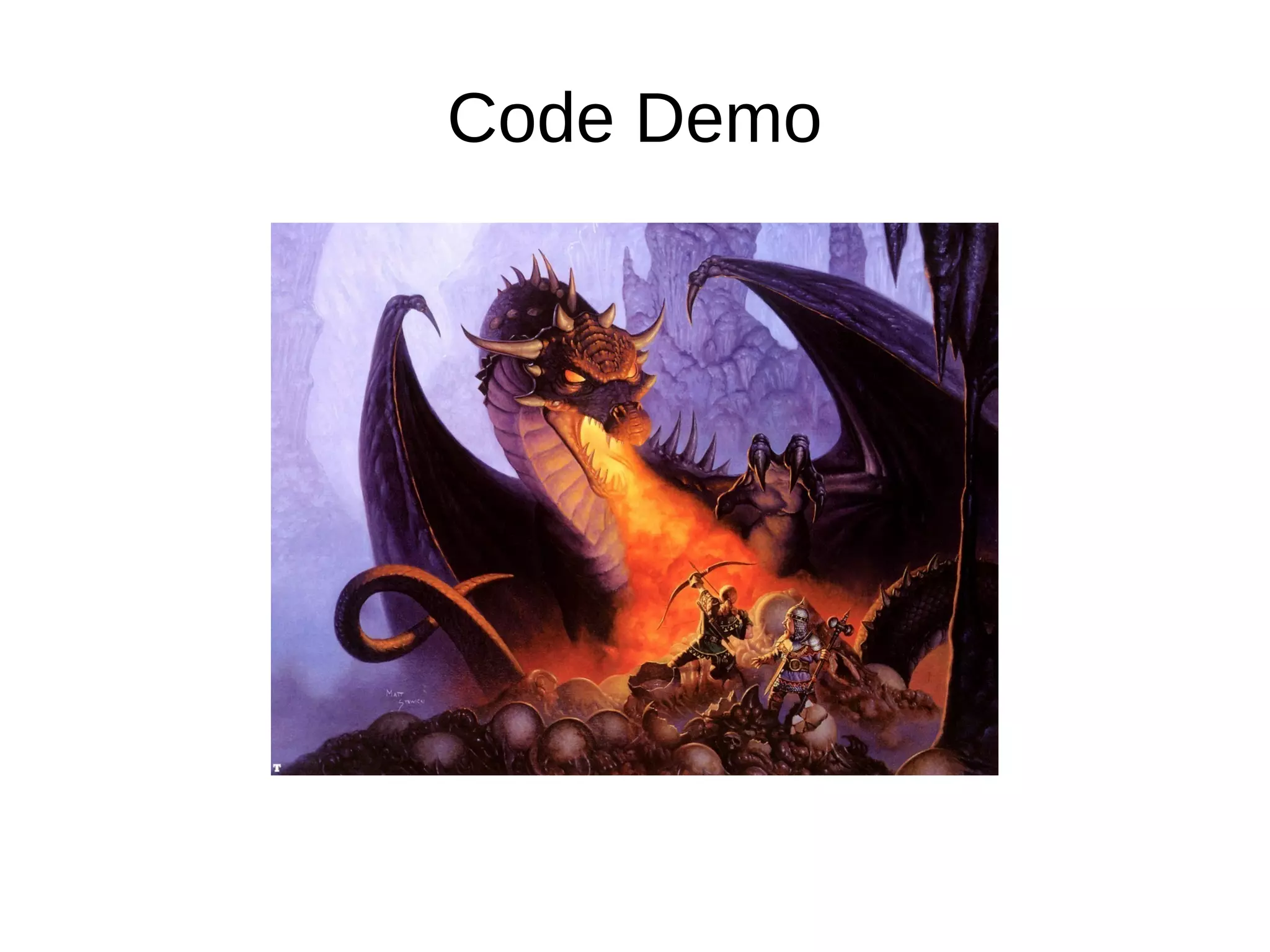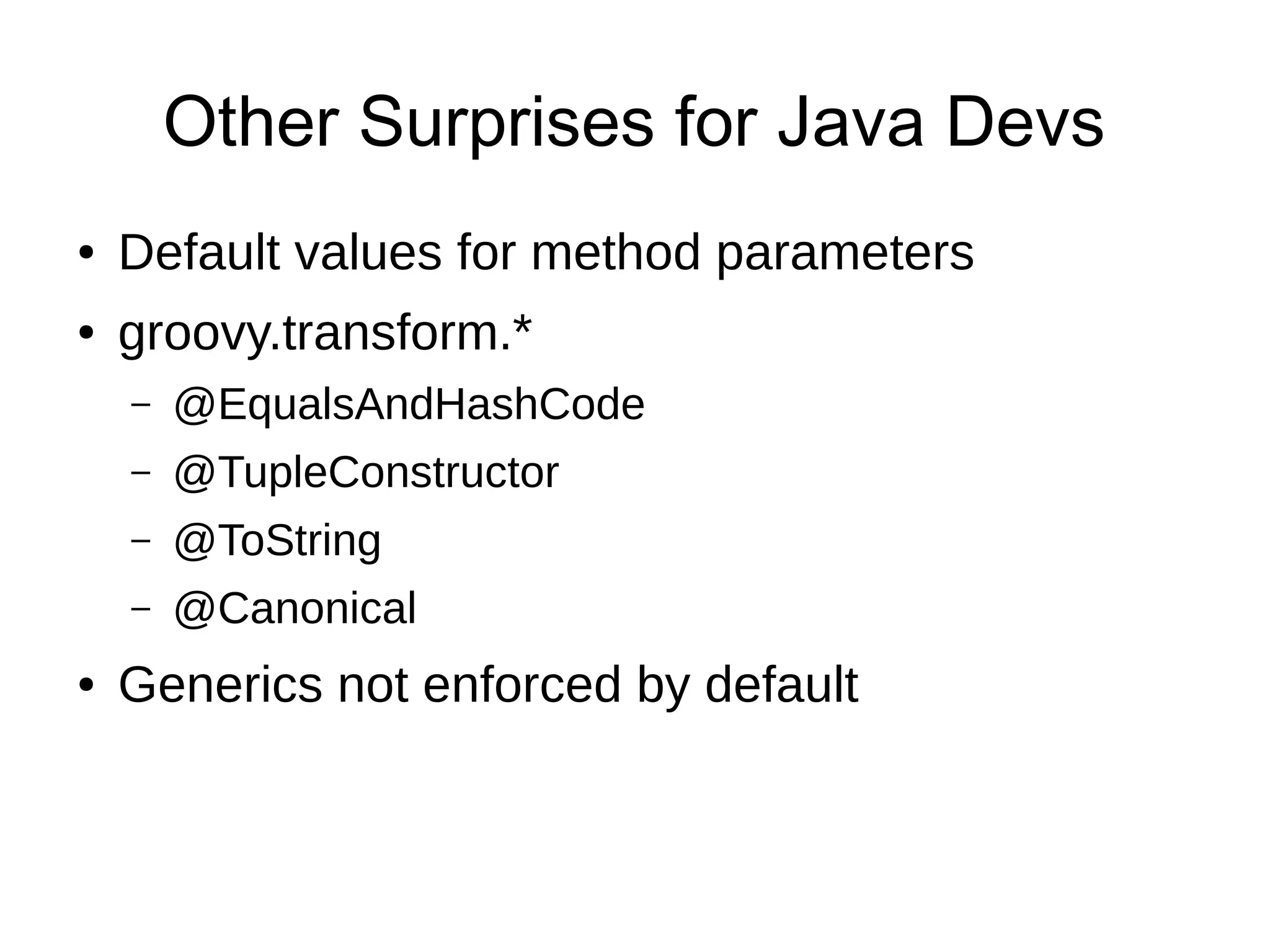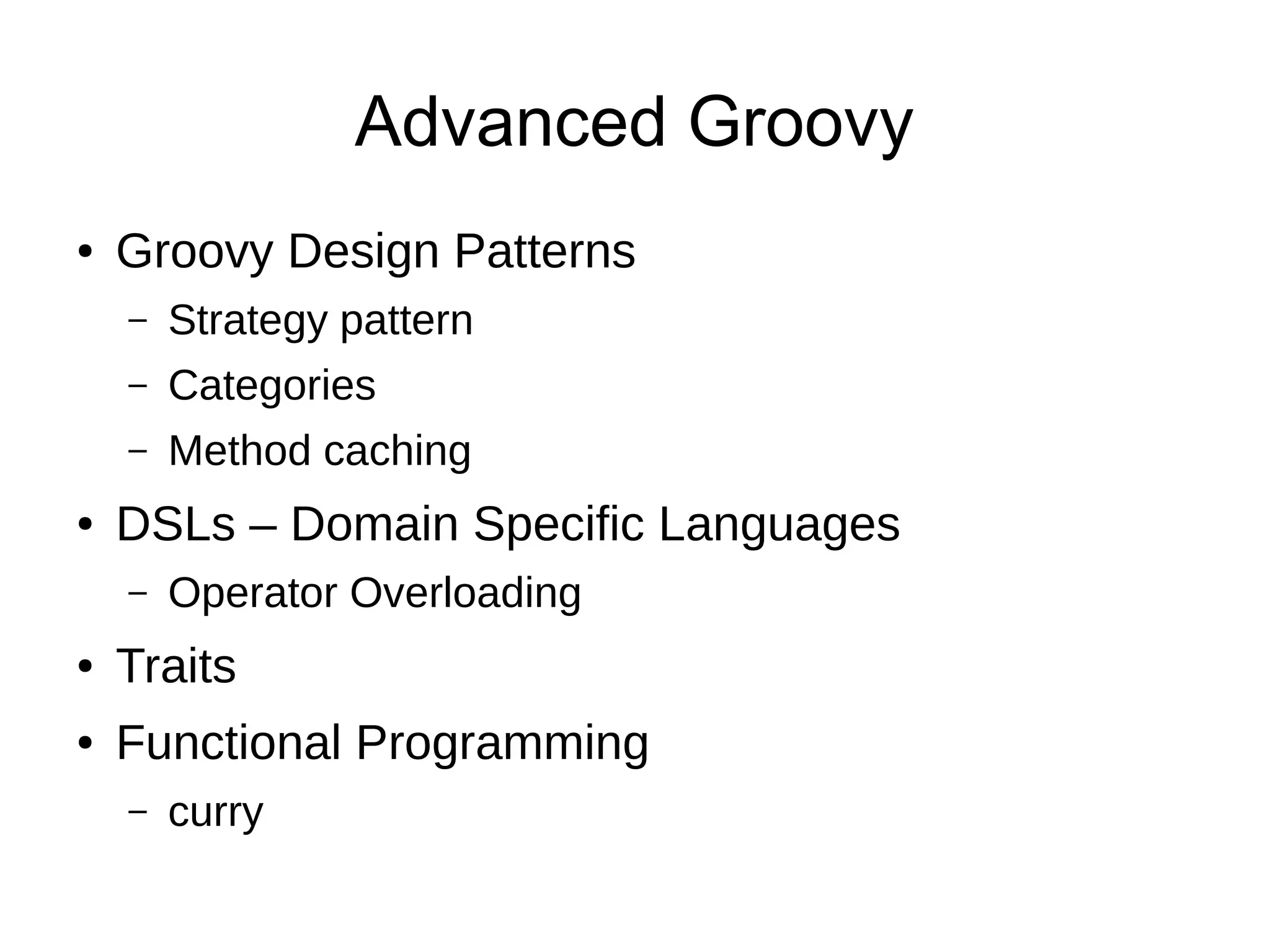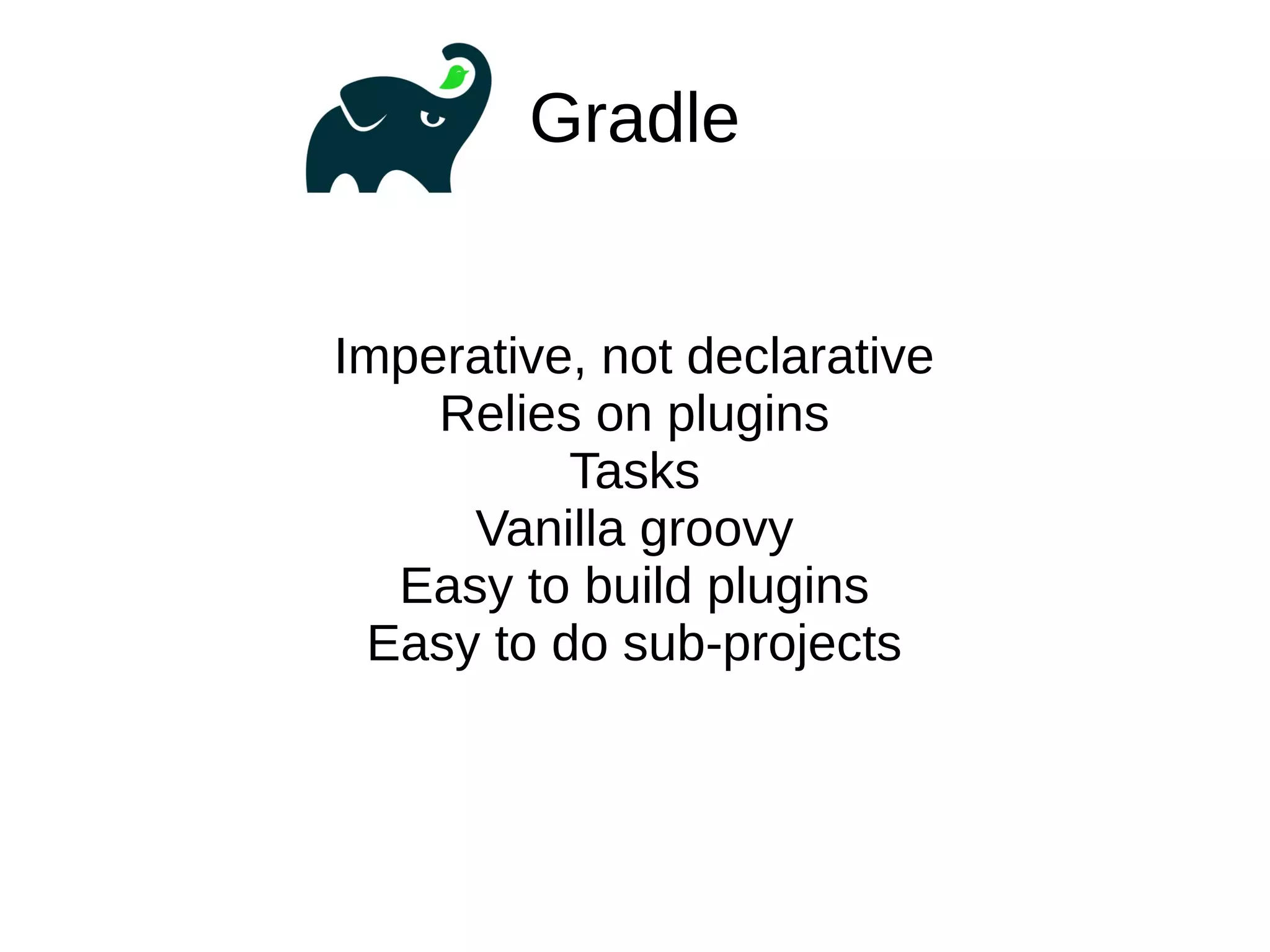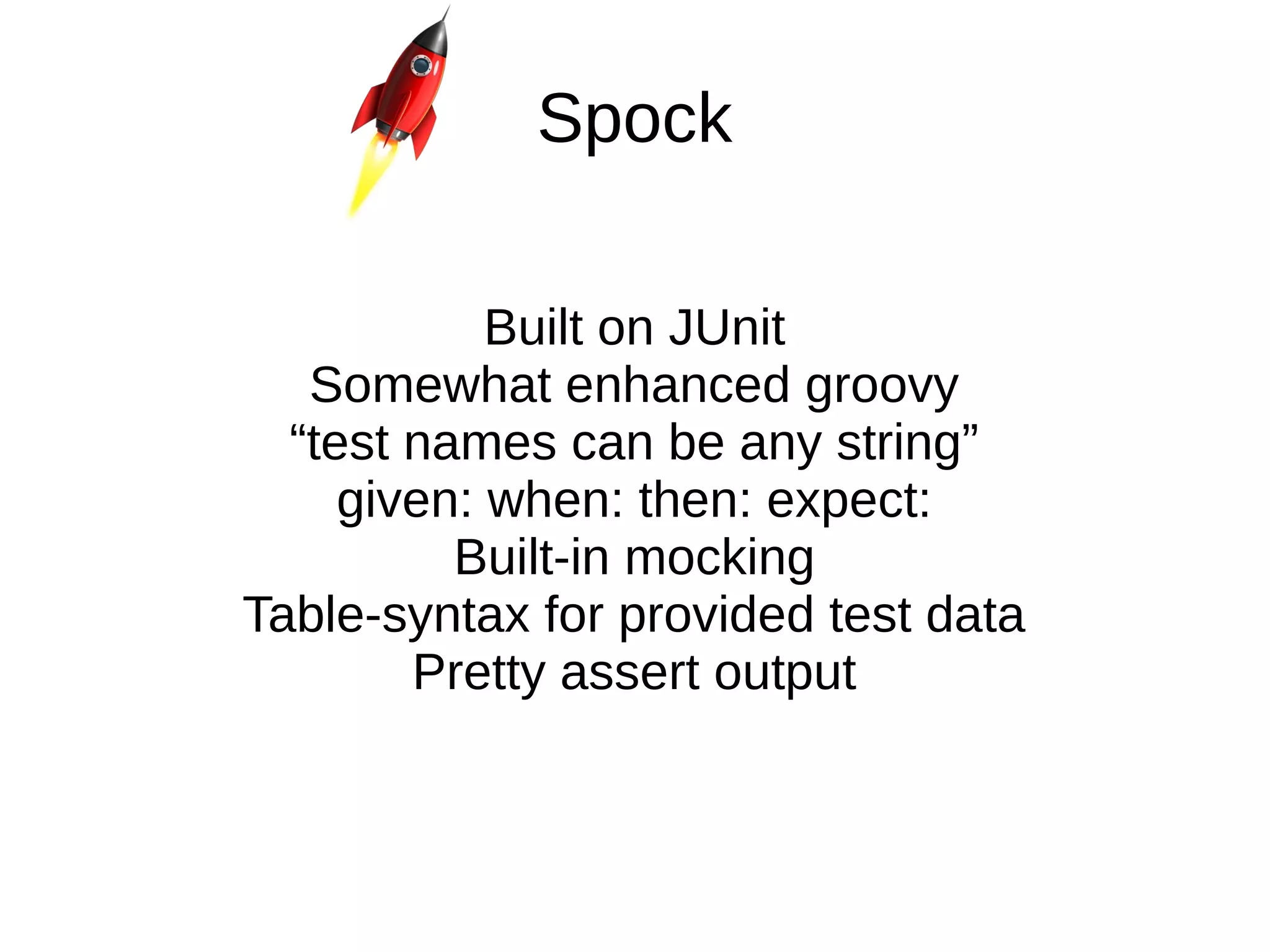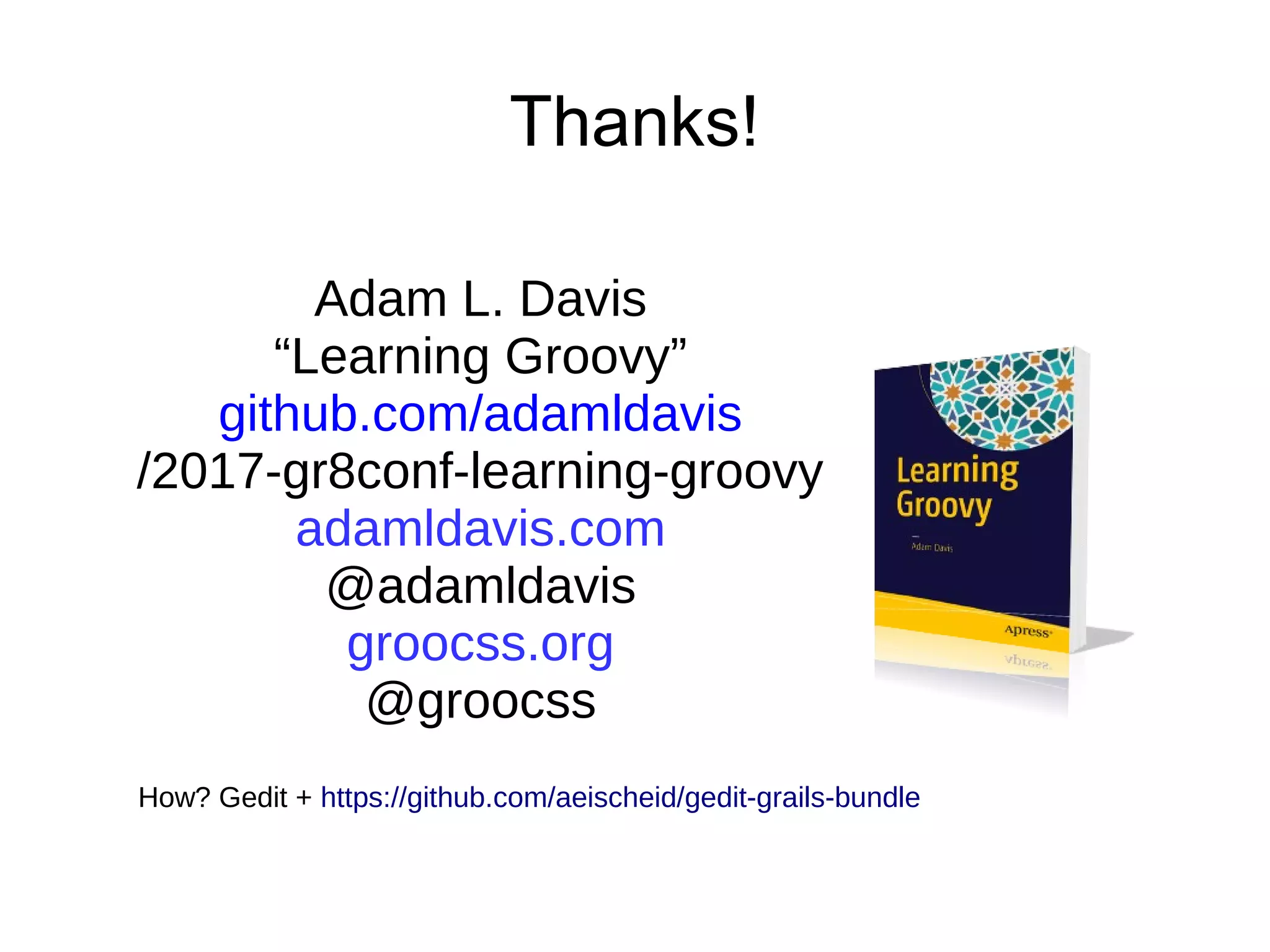The document discusses the Groovy programming language. It provides an overview of Groovy's key features such as dynamic and static typing, meta-programming capabilities, closures, and its integration with Java. It also summarizes how to get started with Groovy and tools in its ecosystem like Gradle and Spock for testing.
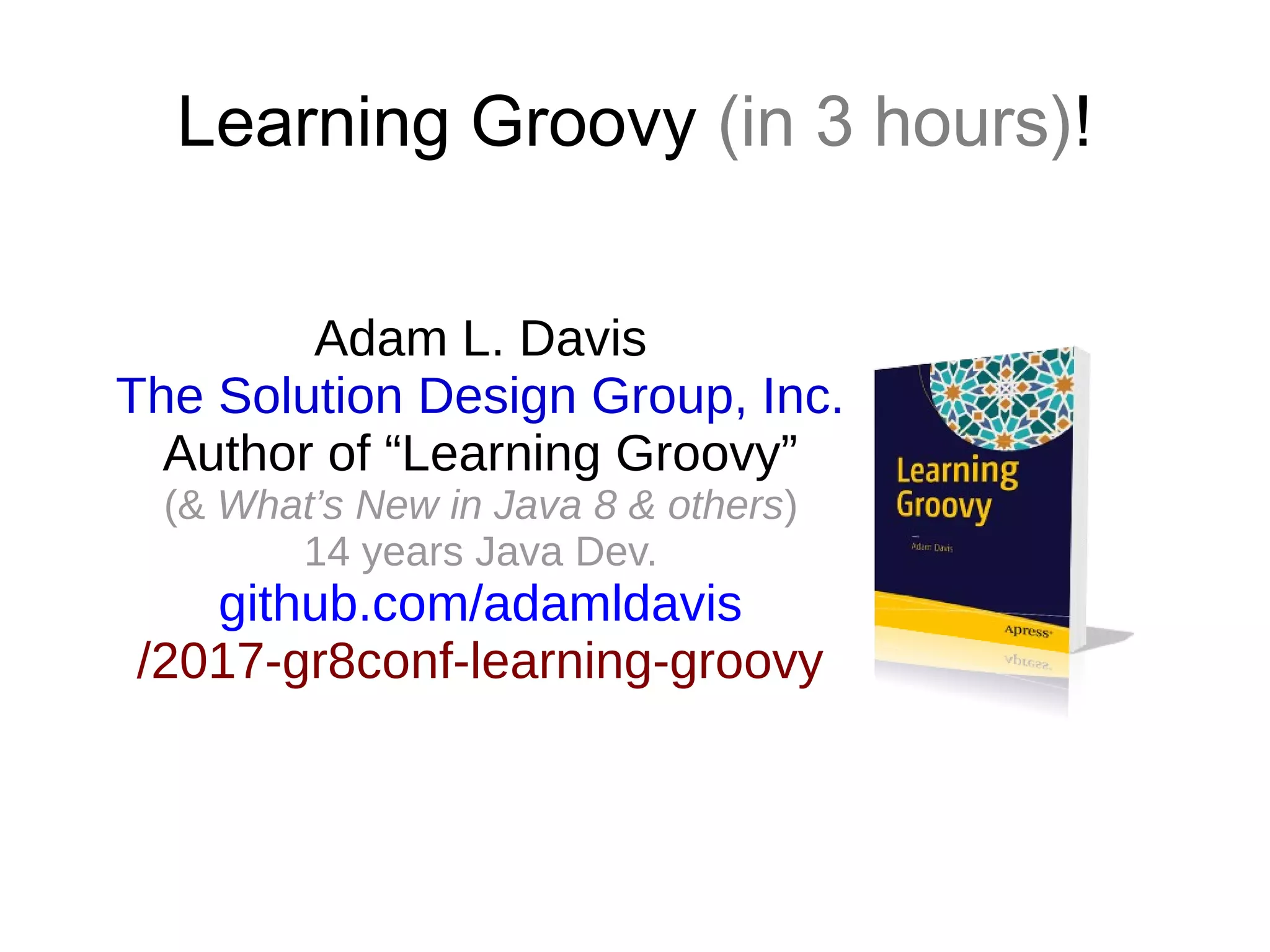



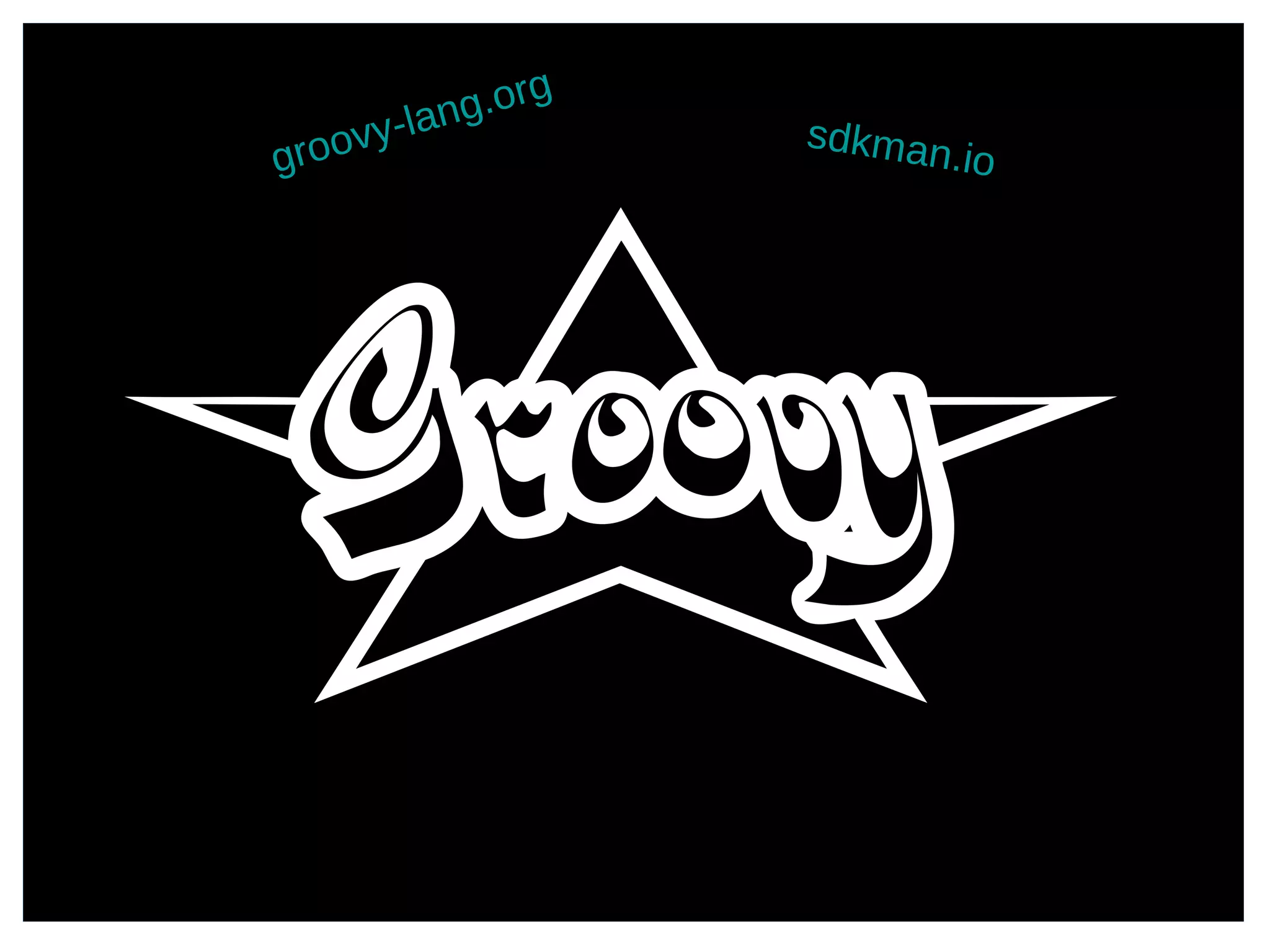
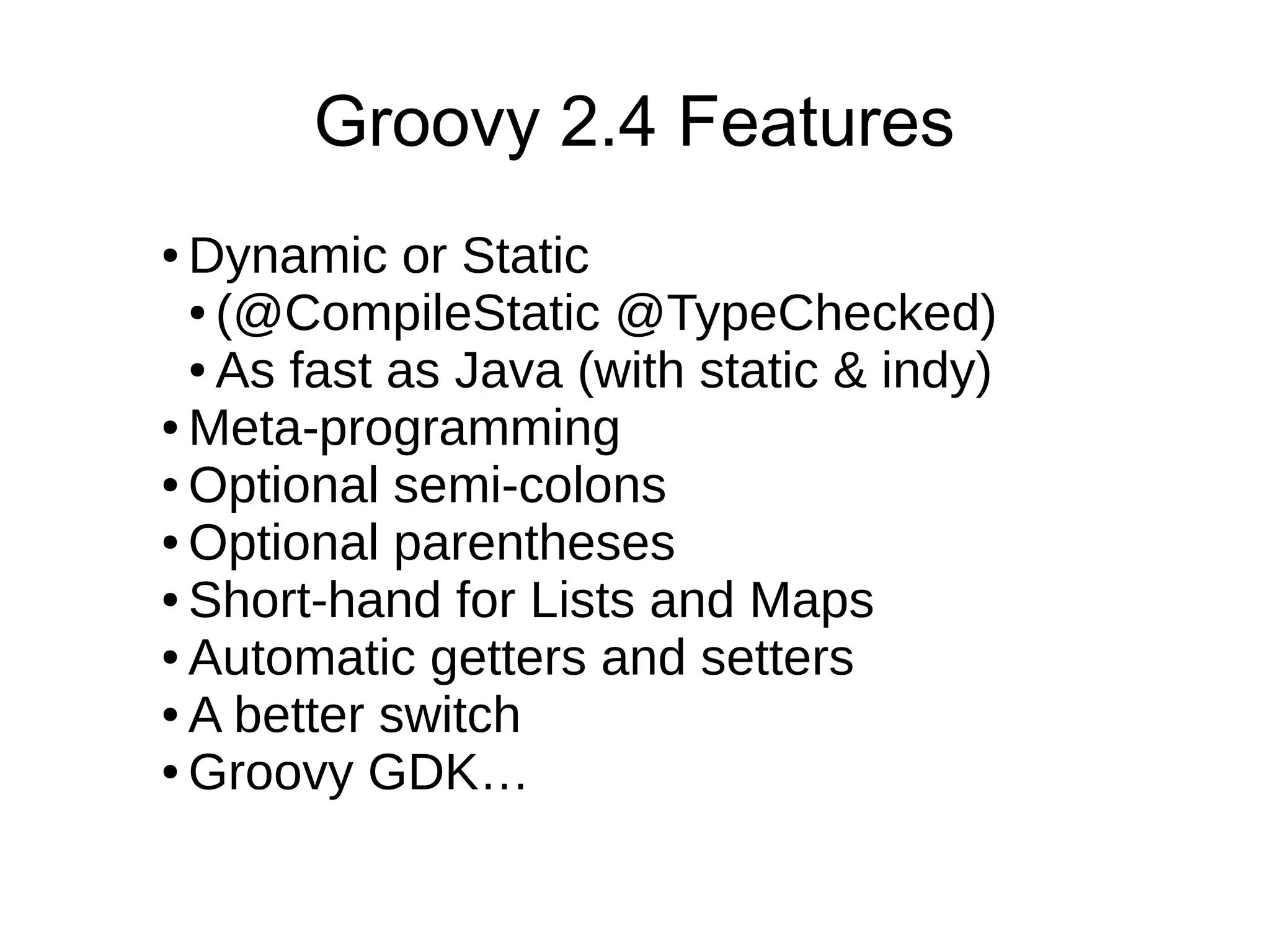
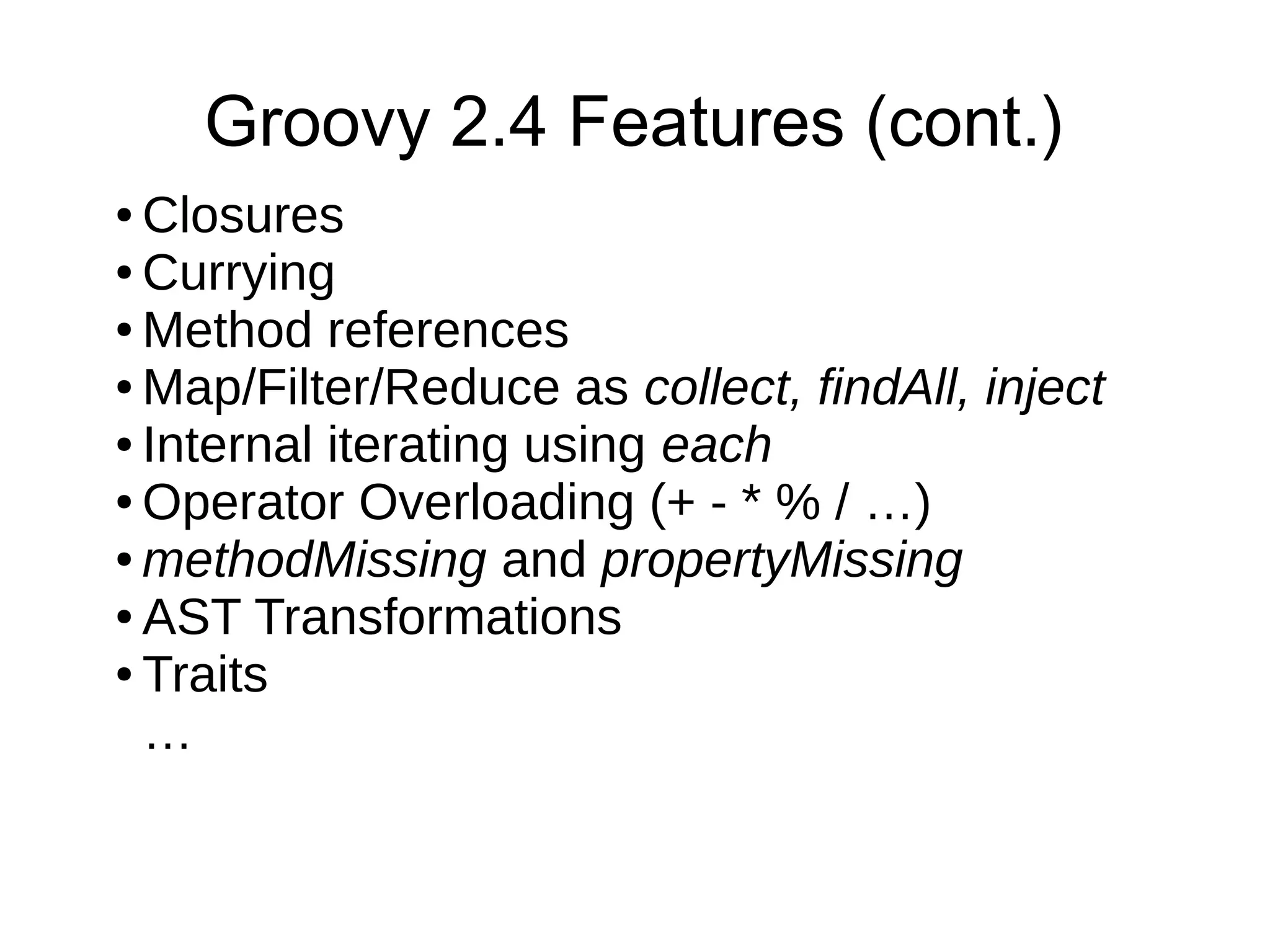
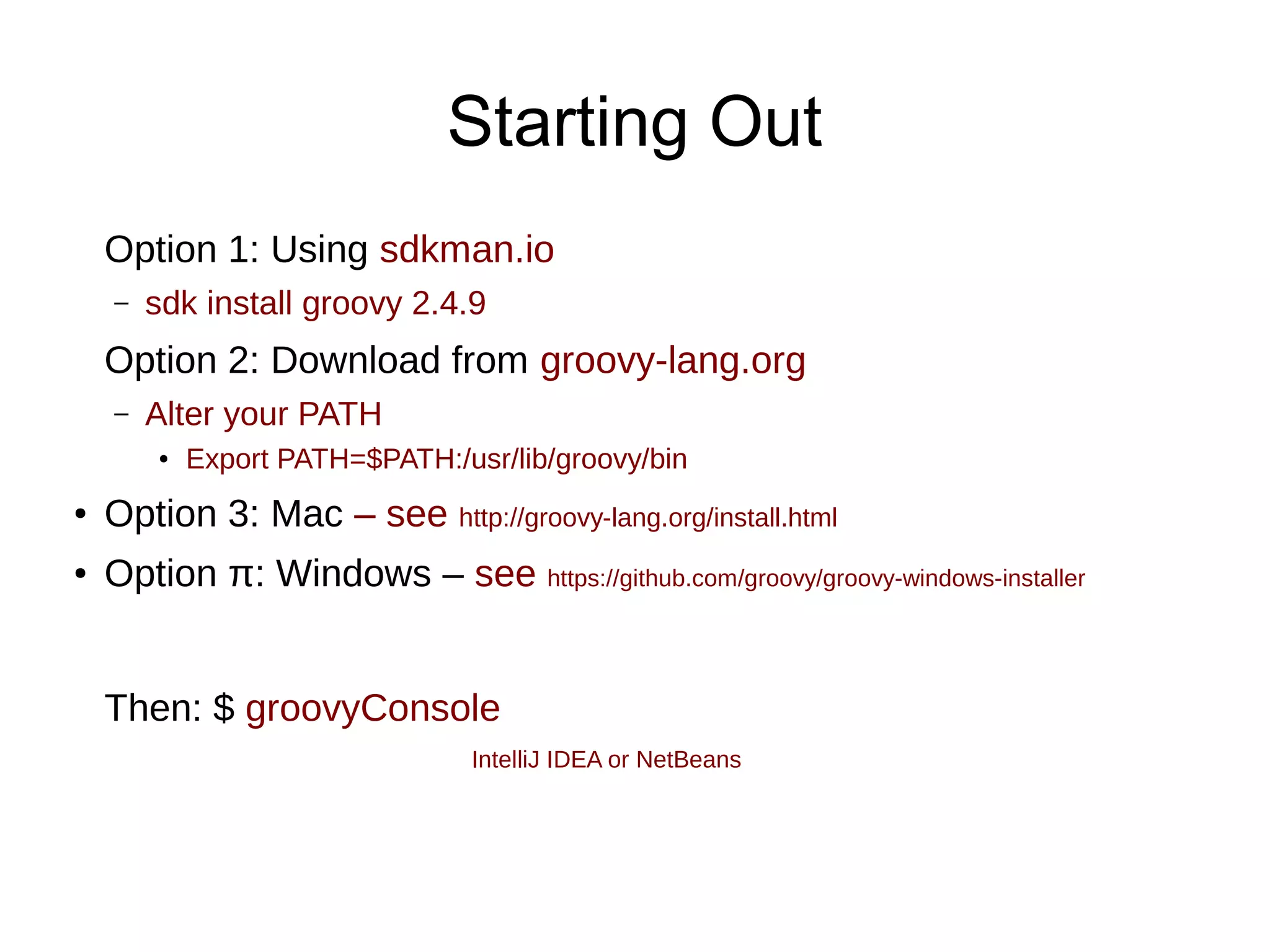
![Dynamic typing
● def keyword
● Parameters’ typing optional
● Possible to mock using a map
– def dog = [bark: { println ‘woof’ }]
● Using @TypeChecked or @CompileStatic you
can make Groovy statically typed in some
classes](https://image.slidesharecdn.com/learninggroovy-halfdayworkshop-170724165439/75/Learning-groovy-1-half-day-workshop-9-2048.jpg)
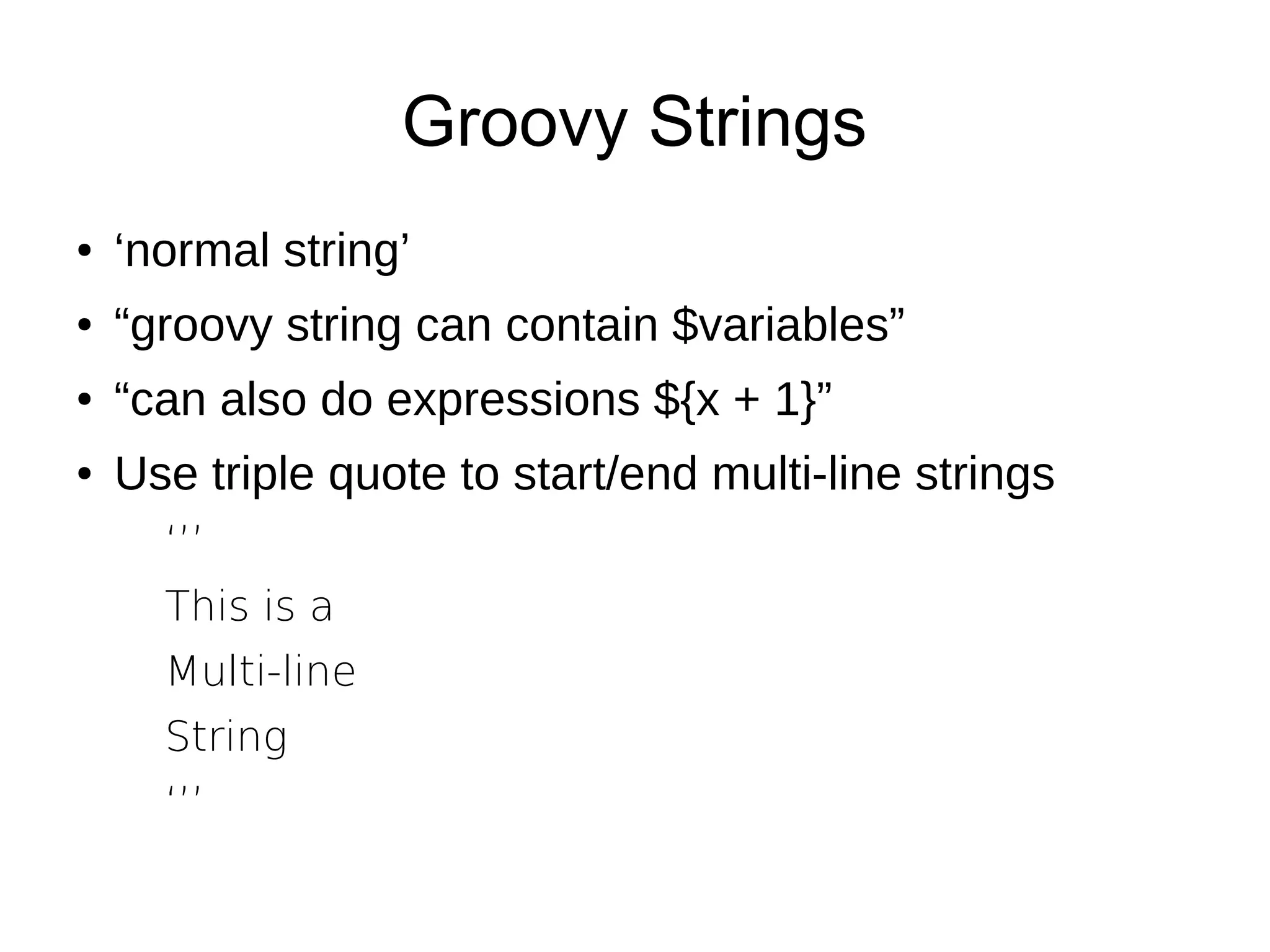
![Math, Groovy Truth, and Equals
● Numbers are BigDecimal by default not Double
– 3.14 is a BigDecimal
– 3.14d is a Double
● Groovy truth: null, “”, [], 0 are false
– if (!thing) println “thing was null”
– if (!str) println “str was empty”
● Groovy == means .equals
– For identity use a.is(b)](https://image.slidesharecdn.com/learninggroovy-halfdayworkshop-170724165439/75/Learning-groovy-1-half-day-workshop-11-2048.jpg)
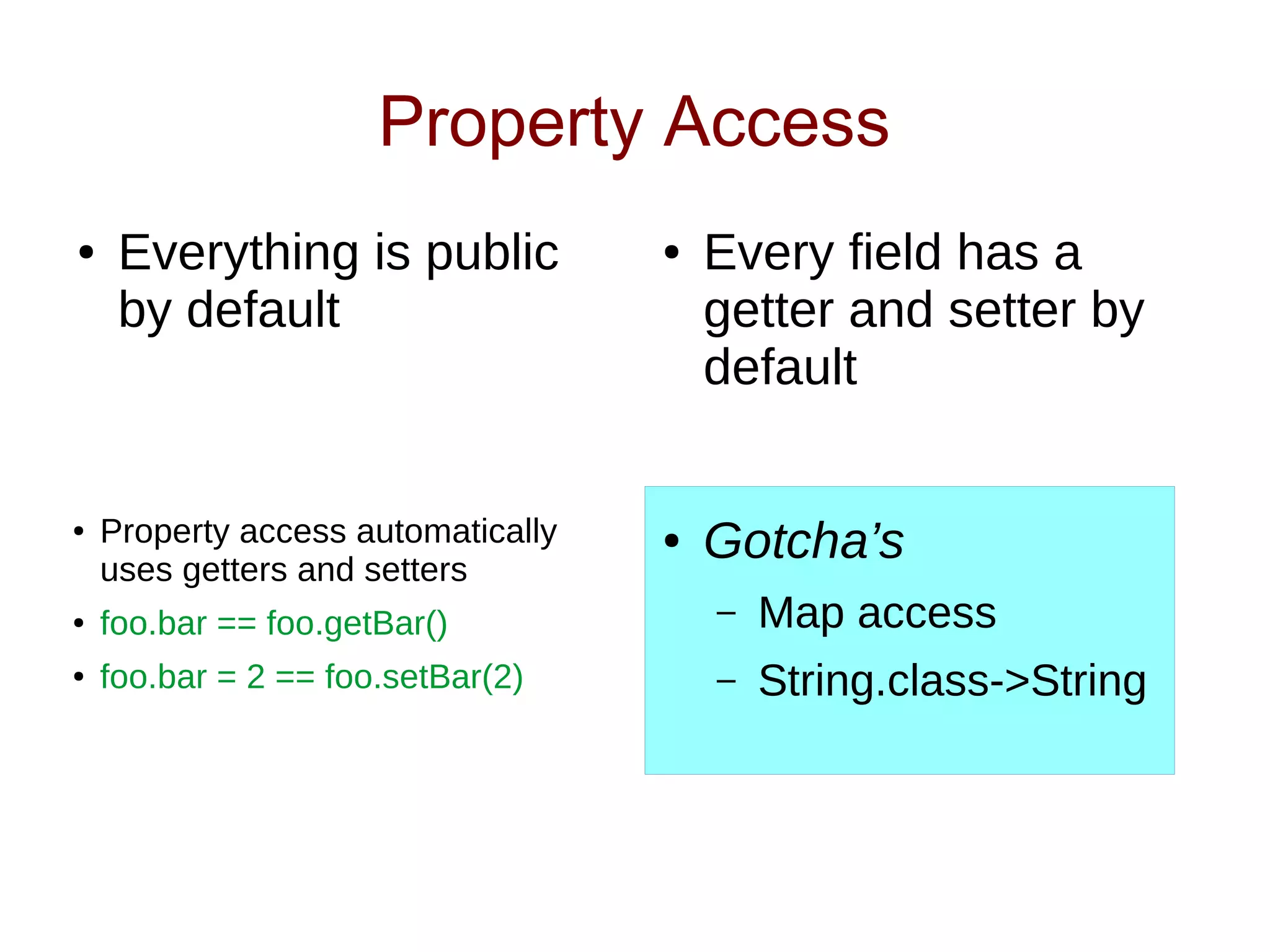
![Lists and Maps
● def emptyList = [ ]
● def emptyMap = [:]
● def numList = [1,2,3]
● def strMap = [cars: 1, boats: 2, planes: 3]
● def varMap = [(var1): 1, (var2): 2, (var3): 3]](https://image.slidesharecdn.com/learninggroovy-halfdayworkshop-170724165439/75/Learning-groovy-1-half-day-workshop-13-2048.jpg)
![Maps Continued...
● def map = [cars: 1, boats: 2, planes: 3]
● String key access: map.cars
● OR map[‘cars’]
● Also works for modifying:
– map.cars = 42
– map[‘cars’] = 42](https://image.slidesharecdn.com/learninggroovy-halfdayworkshop-170724165439/75/Learning-groovy-1-half-day-workshop-14-2048.jpg)
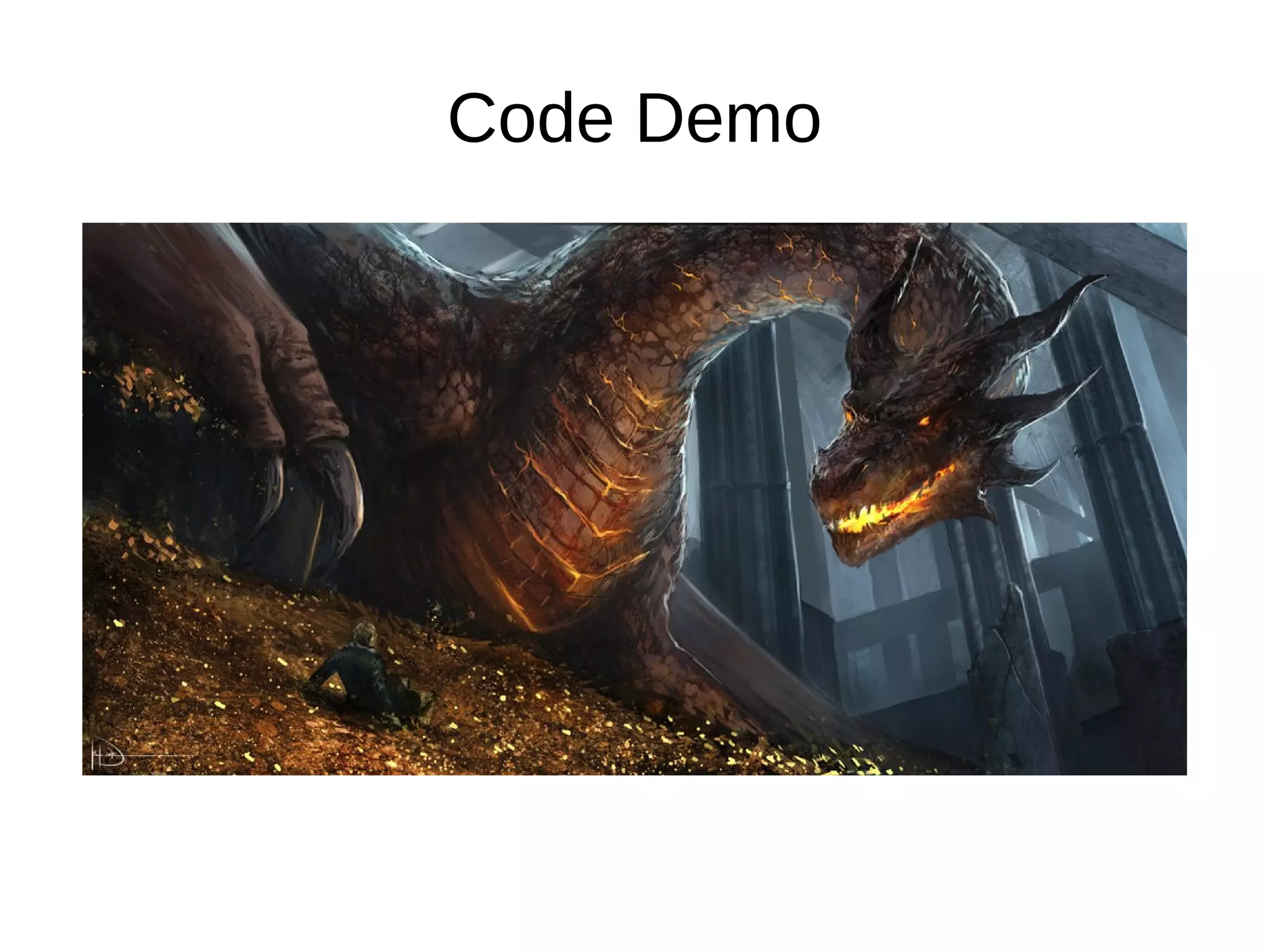
![A better switch
● Switch can use types, lists, ranges, patterns…
Switch (x) {
case Map: println “was a map”; break
case [4,5,6]: println “was 4, 5 or 6”; break
case 0..20: println “was 0 to 20”; break
case ~/w+/: println “ was a word”; break
case “hello”: println x; break
case BigDecimal: println “was a BigDecimal”](https://image.slidesharecdn.com/learninggroovy-halfdayworkshop-170724165439/75/Learning-groovy-1-half-day-workshop-16-2048.jpg)
![Groovy GDK
● Adds methods to everything! Adds its own classes...
● Collections: sort, findAll, collect, inject, each,…
● IO: toFile(), text, bytes, withReader, URL.content
● Ranges: x..y, x..<y
– GetAt syntax for Strings and Lists:
● text[0..4] == text.substring(0,5)
● Utilities: ConfigSlurper, Expando, ObservableList/Map/Set](https://image.slidesharecdn.com/learninggroovy-halfdayworkshop-170724165439/75/Learning-groovy-1-half-day-workshop-17-2048.jpg)
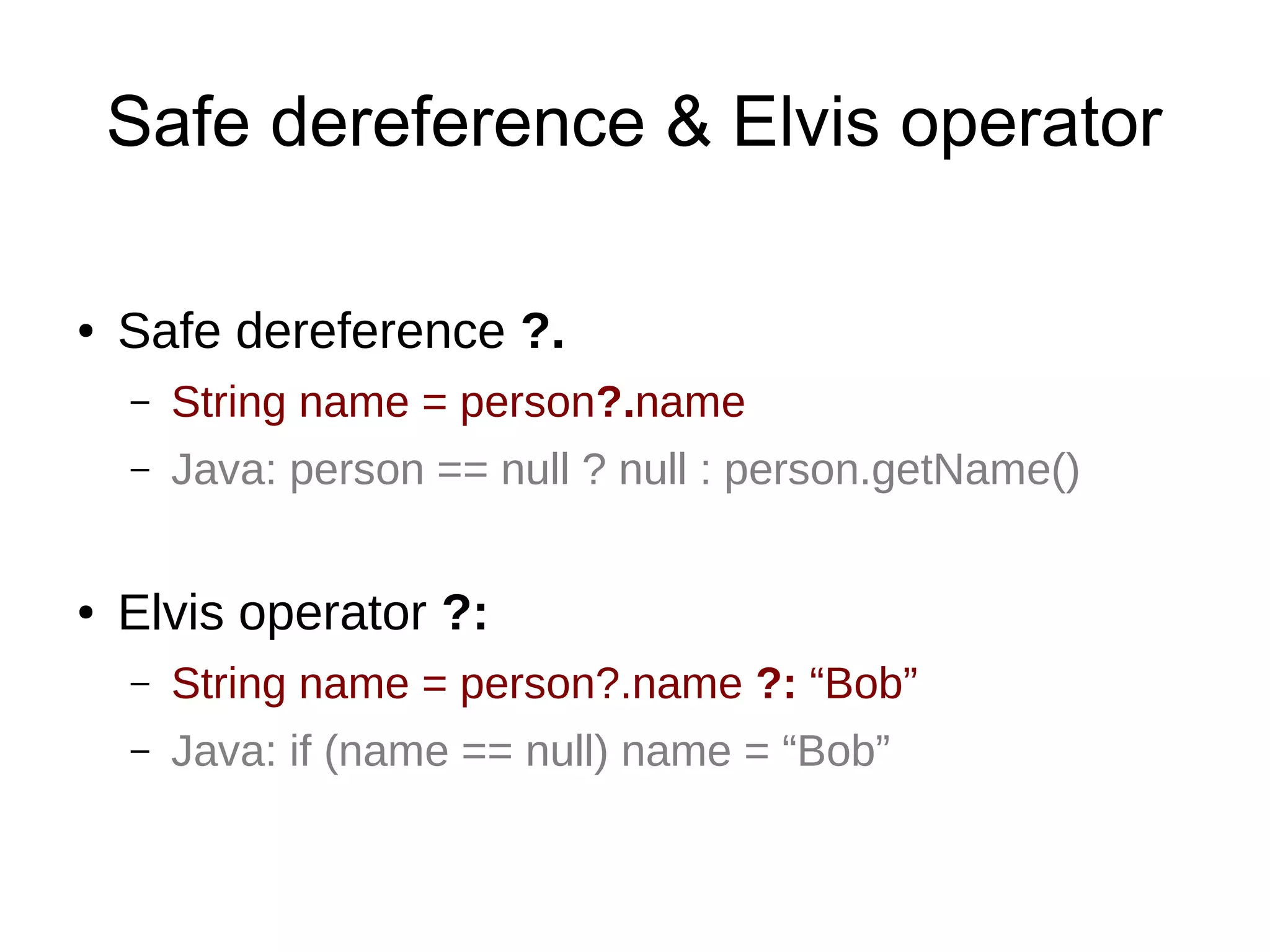
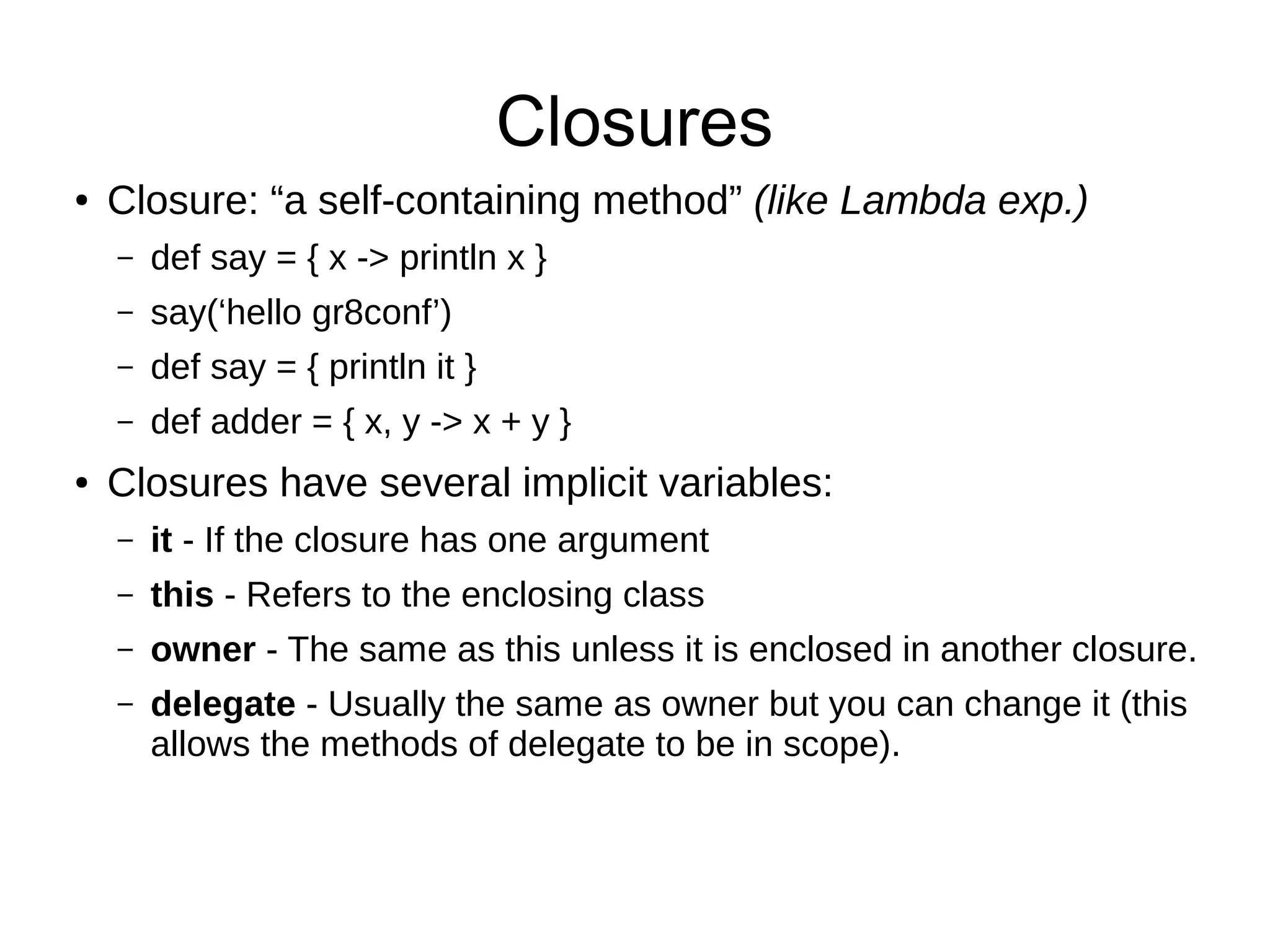
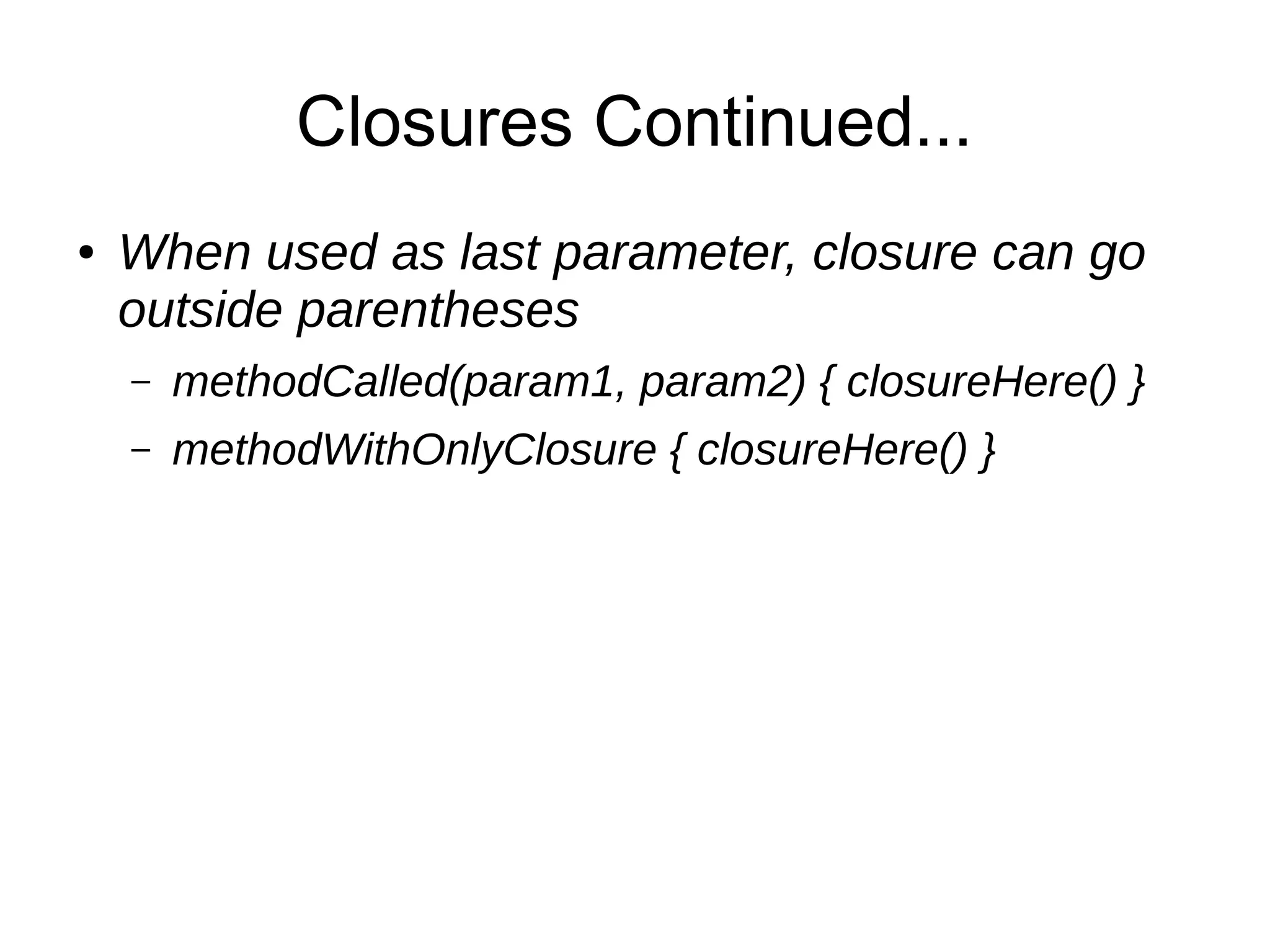
![Regex Pattern Matching
● Regex = regular expressions
● Within forward slashes / is a regex
– You don’t need to use double
● =~ for matching anywhere within a string
– if (text =~ /d+/) println “there was a number in it”
● ==~ for matching the whole string
– if (email ==~ /[w.]+@[w.]+/) println “it’s an email”](https://image.slidesharecdn.com/learninggroovy-halfdayworkshop-170724165439/75/Learning-groovy-1-half-day-workshop-21-2048.jpg)
![Meta-programming
● Every class and instance has a metaClass
● String.metaClass.upper =
{ delegate.toUpperCase() }
– “foo”.upper() == “FOO”
● Traits can be used as
mixins
● Maps can be cast to
actual types using as
[bark: {println “Woof!”}]
as Dog](https://image.slidesharecdn.com/learninggroovy-halfdayworkshop-170724165439/75/Learning-groovy-1-half-day-workshop-22-2048.jpg)
